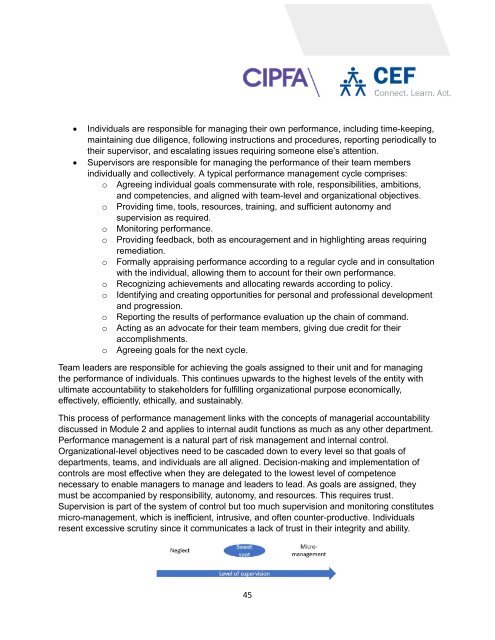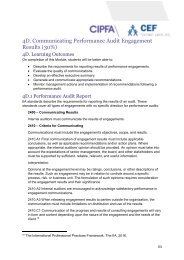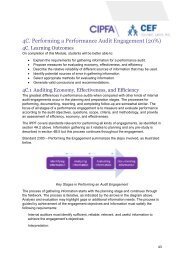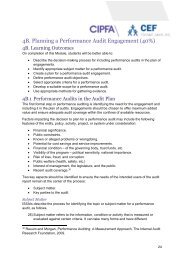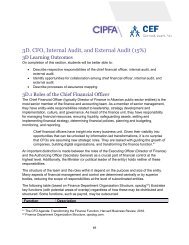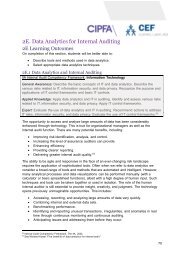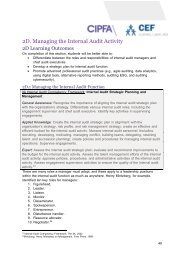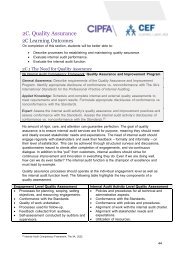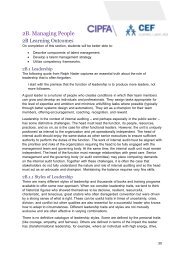Module 3B Managing Resources
You also want an ePaper? Increase the reach of your titles
YUMPU automatically turns print PDFs into web optimized ePapers that Google loves.
• Individuals are responsible for managing their own performance, including time-keeping,<br />
maintaining due diligence, following instructions and procedures, reporting periodically to<br />
their supervisor, and escalating issues requiring someone else’s attention.<br />
• Supervisors are responsible for managing the performance of their team members<br />
individually and collectively. A typical performance management cycle comprises:<br />
o Agreeing individual goals commensurate with role, responsibilities, ambitions,<br />
and competencies, and aligned with team-level and organizational objectives.<br />
o Providing time, tools, resources, training, and sufficient autonomy and<br />
supervision as required.<br />
o Monitoring performance.<br />
o Providing feedback, both as encouragement and in highlighting areas requiring<br />
remediation.<br />
o Formally appraising performance according to a regular cycle and in consultation<br />
with the individual, allowing them to account for their own performance.<br />
o Recognizing achievements and allocating rewards according to policy.<br />
o Identifying and creating opportunities for personal and professional development<br />
and progression.<br />
o Reporting the results of performance evaluation up the chain of command.<br />
o Acting as an advocate for their team members, giving due credit for their<br />
accomplishments.<br />
o Agreeing goals for the next cycle.<br />
Team leaders are responsible for achieving the goals assigned to their unit and for managing<br />
the performance of individuals. This continues upwards to the highest levels of the entity with<br />
ultimate accountability to stakeholders for fulfilling organizational purpose economically,<br />
effectively, efficiently, ethically, and sustainably.<br />
This process of performance management links with the concepts of managerial accountability<br />
discussed in <strong>Module</strong> 2 and applies to internal audit functions as much as any other department.<br />
Performance management is a natural part of risk management and internal control.<br />
Organizational-level objectives need to be cascaded down to every level so that goals of<br />
departments, teams, and individuals are all aligned. Decision-making and implementation of<br />
controls are most effective when they are delegated to the lowest level of competence<br />
necessary to enable managers to manage and leaders to lead. As goals are assigned, they<br />
must be accompanied by responsibility, autonomy, and resources. This requires trust.<br />
Supervision is part of the system of control but too much supervision and monitoring constitutes<br />
micro-management, which is inefficient, intrusive, and often counter-productive. Individuals<br />
resent excessive scrutiny since it communicates a lack of trust in their integrity and ability.<br />
45


